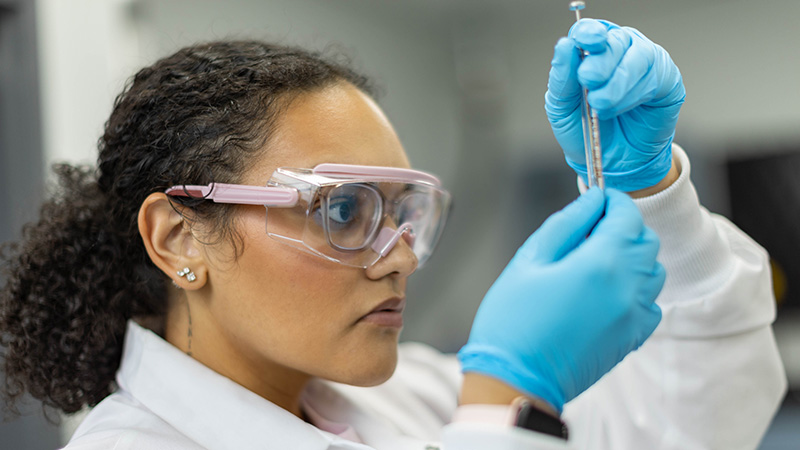The CFSRE specializes in non-routine toxicology testing. Examples include postmortem analysis of insulin analogs and other highly complex targets, as well as the development of niche analytical methods for rarely occurring drugs or poisons. High complexity targets are not frequently operational in routine laboratories; however, large-molecule testing is vital for determining cause of death in unique situations. The CFSRE provides assistance to medical examiners and coroners searching for ultra-esoteric toxicology testing.

Research
Ultra-esoteric toxicology testing involves the analysis of highly challenging substances or matrices which can be infrequently detected or submitted, respectively. Analytical testing for these substances is generally hard to find or is completely unavailable due to need for advanced instrumentation, non-routine equipment, new or emerging software, and/or complex workflows. The CFSRE research program uniquely allows for opportunities to develop methods under this umbrella to benefit forensic toxicology community.
Benefits
- Ultra-esoteric toxicology testing is rarely performed by traditional forensic toxicology laboratories meaning these analyses may not be performed and the substances may go unreported.
- Specialized methods and expertise are required to perform ultra-esoteric toxicology testing.
- The CFSRE specializes in postmortem testing of insulin from various biological matrices, including vitreous, blood, and tissues.
- The CFSRE developed a quantitative method for the analysis of 2,4-dinitrophenol (DNP) and applied the method to the analysis of authentic casework specimens.
Applications
Methods developed under our ultra-esoteric toxicology research initiative have been published in the peer-reviewed literature, allowing other laboratories the ability to develop in-house methods, if necessary. Our ultra-esoteric toxicology testing methodologies have been applied to authentic forensic specimens, both qualitatively and quantitatively. If your laboratories is interested in a new ultra-esoteric application, please
contact our scientists for further consultation.
Resources
The CFSRE develops informative open-access resources to contribute to the scientific community, including scientific reports or publications and training or educational materials.
Publications and Presentations
Peer reviewed publications
- Kevin M Legg, Laura M Labay, Sally S Aiken, Barry K Logan. Validation of a Fully Automated Immunoaffinity Workflow for the Detection and Quantification of Insulin Analogs by LC–MS-MS in Postmortem Vitreous Humor. Journal of Analytical Toxicology, Volume 43, Issue 7, September 2019, Pages 505–511, https://doi.org/10.1093/jat/bkz014
- Eduardo G de Campos, Melissa Fogarty, Bruno Spinosa De Martinis, Barry K Logan. Analysis of 2,4‐Dinitrophenol in Postmortem Blood and Urine by Gas Chromatography–Mass Spectrometry: Method Development and Validation and Report of Three Fatalities in the United States. Journal of Forensic Sciecnes. Volume 65, Issue 1, January 2020, Pages 183-188, https://doi.org/10.1111/1556-4029.14154
Presentations
- Eduardo de Campos, Melissa F. Fogarty, Barry K. Logan. 2,4-Dinitrophenol (2,4-DNP)—An “Old New Drug”: A Gas Chromatography/Mass Spectrometry (GC/MS) Method for Screening and Quantitation of 2,4-DNP in Postmortem Blood Specimens and Three Fatal Poisoning Cases Reports. Society of Forensic Toxicologists. 2019 Annual Meeting. Platform Presentation.
- Kevin Legg, Laura Labay, Sally S. Aiken, Barry Logan. Identifications and Quantification of Exogenous Insulin Analogs in Postmortem Specimens. Society of Forensic Toxicologists. 2019 Annual Meeting. Platform Presentation.









